#Co. Kilkenny
Text
#OTD in Irish History | 30 November:
1667 – Birth in Dublin of Jonathan Swift, poet, satirist and clergyman.
1670 – Birth of rationalist philosopher, freethinker and occasional satirist, John Toland, in Inishowen, Co Donegal. He wrote numerous books and pamphlets on political philosophy and philosophy of religion. He also produced some highly controversial polemics, including the Treatise of the Three Impostors, in which…
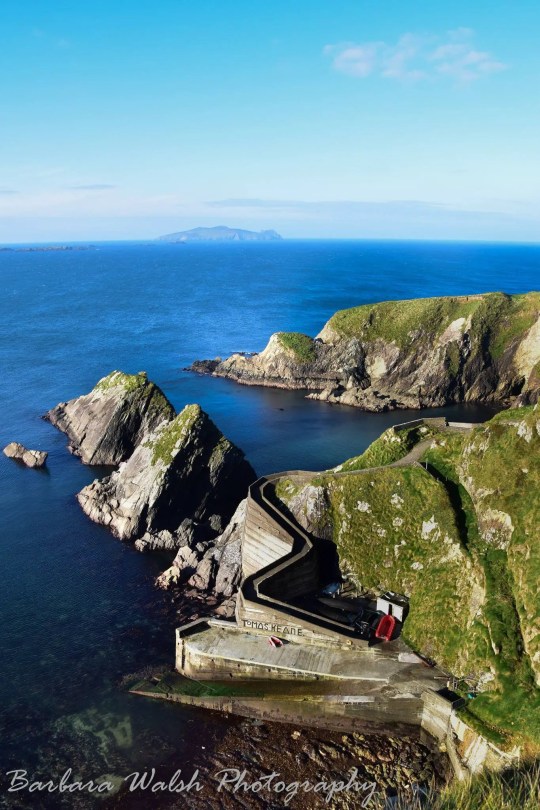
View On WordPress
#irelandinspires#irishhistory#OTD#30 November#Co. Kilkenny#History#History of Ireland#IRA#Ireland#Irish Civil War#Irish History#Irish War of Independence#Today in Irish History
15 notes
·
View notes
Text
THOMAS WOODGATE MEMORIAL MARCH 2021 AND SEPTEMBER 2022 REF-210374-1
ONE OF THE YOUNGEST MILITARY CASUALTIES OF WWI
I first photographed this memorial in March 2021 but forgot to publish the resulting images.
In 2021 I used a Sony 7RIV with a Sony PZ 28-135mm Lens and in 2022 I used a Canon 5D MkIII with a Sigma 24-105mm Lens.
Thomas was from Callan in Co Kilkenny, the son of Edward and Hanora Woodgate of Mill Street, and until recently it was assumed that he…

View On WordPress
#14 Years Old#Callan in Co Kilkenny#Corten Steel#Edward Woodgate#Fotonique#grangegorman military cemetery#Hanora Woodgate#Infomatique#Martin Stapleton#memorial#mildsteel#Public Art#Sculpture#Thomas Woodgate#William Murphy#WW1 First World War
0 notes
Text
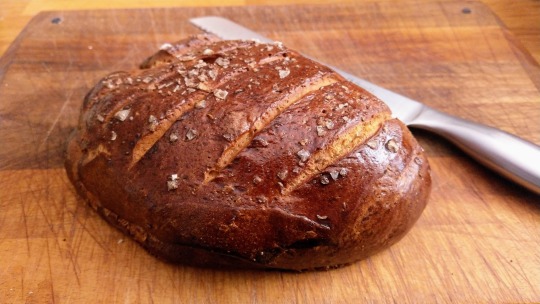
So, today's rye bread test (with white rye flour).
I used the King Arthur Flour caraway rye recipe, also referring to the blog entry from one of their staff who was testing it. I went for the two-small-loaves option, this time out. The white rye flour came from our local miller, Kells of Co. Kilkenny.
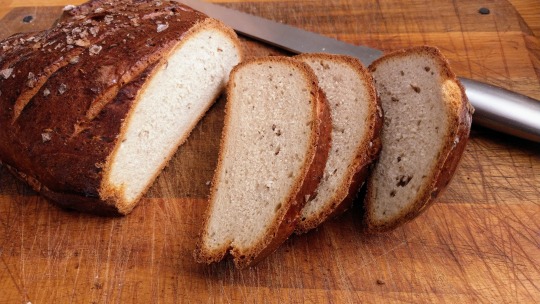
It came up pretty well for a first attempt. (The gloss comes from egg wash brushed on before baking.) ...I did the kneading in the mixer with a dough hook. Suggestions that this dough might be sticky didn't prove true for me: it was a dense dough, but not at all hard to deal with. (Maybe our regular bread flour, which was mixed with this about two parts white to one part rye, was more absorptive than whatever they were using.)
Nice crust on this. Not a huge rise, but then I didn't use either the added gluten or the rye improver they were suggesting, so... (shrug) The crumb was tender, if a bit dense. It toasts nicely. And (as I usually wind up thinking) I should have used about twice the recommended caraway... but this was due to a long habit of always doing a recipe by the numbers, the first time out. Also, next time I'll do it as a single loaf and we'll see how it behaves.
Meanwhile, must get my hands on the extra-gluten additive and see how well it works.
#rye bread#white rye#in search of the perfect deli rye#the neverending quest#bread#baking#bread recipes
121 notes
·
View notes
Note
Not from the ask list but the characters in ur fics as Irish counties and why?
anon, this has absolutely sent me. i have genuinely never seen something more up my alley.
let's start with characters we can pull from the series for ireland's six superior counties, shall we...
antrim = oliver wood
a county full of lads who've never met a spivvy tracksuit they don't think is the height of fashion, and who have a vastly inflated sense of their success at sports.
armagh = tom riddle
armagh has a [deservedly] bloody reputation. he could settle down in the murder triangle. he'd like that.
down = draco malfoy
people who live in co. down really like thinking they're better than the rest of us just because it's easy for them to get to belfast [lads, how's that something to boast about?], so they have to be the series' whiniest flop.
fermanagh = rubeus hagrid
fermanagh is full of docile lads who build things, in my experience.
londonderry = ron weasley
canonically gorgeous, gorgeous girlies live in this fine county - by which i mean, of course, that i do. we deserve to be represented by the series' most gorgeous girly. and a ginger sweetheart with six siblings [so you know which side of the sectarian divide his parents are on...] would go down a storm with our mams.
tyrone = harry potter
my brother once had his nose broken in a pub in strabane, which doesn't sound particularly interesting until you realise that my brother is a priest.
by which i mean - a county filled with people who are reckless, quick-tempered, and always ready to throw hands? it can only be represented by one man...
---
and then the rest...
carlow = quirinus quirrell
the most interesting thing there is a big rock.
cavan = percy weasley
everyone i've ever met from cavan has been really boring and really tight. so there's that.
clare = ginny weasley
because it's gorgeous, in a not like other girls way.
cork = albus dumbledore
look at this canon line and tell me dumbledore's not a cork man...
"In fact, being — forgive me — rather cleverer than most men, my mistakes tend to be correspondingly huger.”
donegal = sybill trelawney
always away with the fairies up there... and always drunk too.
dublin = walburga black
everyone you've ever met who lives in dublin is genuinely shocked to discover that the rest of the world exists beyond the m50. it's not not giving "has never set foot in muggle london and would die before she did".
galway = arthur and molly weasley
galway is the home of the nation's sophisticated [and, apparently, sexually adventurous] culchies - which fits two people from clearly quite distinguished backgrounds who nonetheless live the way they do...
kerry = gilderoy lockhart
you will never see american tourists get scammed more glamorously than in kerry.
kildare = regulus black
considerably less interesting than - and devoid of identity in comparison to - its neighbour, dublin.
kilkenny = charlie weasley
all they do is have red hair and hurl.
laois = daphne greengrass
on account of her irrelevance.
leitrim = sally-ann perks
on account of her irrelevance.
limerick = bellatrix lestrange
limerick used to be known as "stab city". she'd fit right in.
longford = mungundus fletcher
gombeen men abound.
louth = myrtle warren
because they [by which i mean the two people i know who were born there...] are always fucking moaning.
mayo = remus lupin
perpetually mopey, unless they reckon they're great at something.
meath = cormac mclaggen
they wish they were as class as the lads in dublin.
monaghan = cuthbert binns
genuinely couldn't locate it on a map.
offaly = grawp
i mean, who fucking knows? the entire place is a bog.
roscommon = aberforth dumbledore
you can guess why...
sligo = fred and george weasley
wheeler dealers, the lot of them.
tipperary = fleur delacour
the home of gorgeous, gorgeous girlies with striking accents.
waterford = dobby
they love a good strike.
westmeath = hermione granger
not somewhere you'd expect you'd choose to live if you were a bit of a know-it-all. and yet.
wexford = neville longbottom
they love to bang on about the soil.
wicklow = marge dursley
she drives a range rover and looks down on anyone who farms, change my mind.
[other answers from this ask game]
#asks answered#very normal fic writer asks#northern ireland posting#republic of ireland posting#why have i done this
21 notes
·
View notes
Text
Vails
I haven't actually talked about it here a lot, partly because I try not to do heavy history stuff here - this blog is meant to be a hobby, after all - and it's something I'm frankly too passionate (obsessed) about, but my main area of historic interest and focus, especially when it comes to my own personal research, is the history of domestic service. It is not an exaggeration to say it is my life's work.
Another reason I don't write about it often is I don't really know where to start. My breadth of knowledge on the subject is quite broad, so there's a lot I could say, but I think I'll try to write some small things about specific aspects of it.
Vails were, in the 18th (and I believe also 19th) century, basically what we could today call tips, often paid to servants. And when you read things written by the 'master class' of people being served, while they're obviously biased and exaggerating, it does become clear that servants rather enforced them. There wasn't a guild system for servants like there were for trades, but there were informal clubs and groups, and this is one of the ways they seem to have acted together, almost as a form of unionization. There's a letter to a British newspaper where the write says that he estimates many servants are doubling, tripling, or even quadrupling their annual salaries through vails. I could write more but I'll just transcribe some of my favourite passages on this subject from the book Life in the Country House in Georgian Ireland by Patricia McCarthy:
I will add too, while this is specifically talking about paid servants in Britain, you do see vails paid to enslaved people in America as well. Probably not as often, but Philip Vickers Fithian, who wrote a diary about his experiences in Virginia in the 1770s, writes about similar things of the enslaved people at the plantation he's staying at expecting their "Christmas boxes" of vails, although they weren't quite as beholden to the actual date of Boxing Day.
...
The customary scene in the hall, as their guests waited for their carriages or horses to be brought to the door, embarrassed many. [Marshall, Domestic Servants] Hosts feigned ignorance of their guests' fumbling in their pockets to find shillings and half-crowns to distribute to the servants, who had lined themselves up expectantly. Whether the motive for allowing the practice was to salve the collective conscience of the employers at paying such low wages is not clear. [Bridget Hill, Servants: English Domestics in the 18thc.] It was not confined to great houses, but was also expected in more modest establishments, although the amounts given were less. It was also not only expected on departure from the house of a friend: vails were disbursed by 'house tourists' to whichever servant showed them around - in most cases an upper servant.
...
An army officer described how much his visit to the house of a friend would cost him: 'The moment your departure is known, all the domestics are on the qui vive; the house-maid hopes you have forgotten nothing in packing up, if so, she will take care of it till you come again; this piece of civility costs you three ten-pennies; the footman carries your portmanteau .. to the hall, three more; the butler wishes you a pleasant journey - his greate kindness in so doing of course extracts a crown-piece; the groom brings your horse, assuring you 'tis an ilegant baste, and has fed well' - three more ten-pennies go; the helper runs after you with the curb-chain, which he has 'till this moment carefull secreted - two more; making a total of seventeen, or, in English money, upwards of fourteen shillings. A heavy tax for visiting a friend!' [Benson Earle Hill, Recollections of an Artillery Officervol. 1]
...
Richard Griffith from Bennetsbridge, Co. Kilkenny, complained in c.1760 in a letter to hise wife that 'an heavy and unprofitable Tax still subsists upon the Hospitality of this Neighbourhood .. in short while this Perquisite continues, a Country Gentleman may be considered but as a generous Kind of Inn-holder, who keeps open House, at his own Expence, for the sole Emolument of his Servants .. this Extravagance is not confined, at present, solely to the Country .. ; for a Dinner in Dublin, and all the Towns in Ireland, is even in a Morning, with a Person who keeps his Port, you may levee him fifty Times, without being admitted by his Swiss Porter. So... I shall consider a great Man as a Monster, who may not be seen, 'till you have fee'd his Keppers.' [R. and E. Griffith, A Series of Genuine Letters Between Henry and Frances, vol. 4]
...
Swift gives similar suggestions in Directions to Servants: 'By these, and like Expedients, you may probably be a better Man by Half a Crown before he leaves the House.' He further urges those servants who expect vails 'always to stand Rank and File when a Stranger is taking his Leave; so that he must of Necessity pass between you; and he must have more Confidence or less Money than usual, if any of you let him escape, and according as he behaves himself, remember to treat him the next Time he comes.'
...
Card money was particularly lucrative for butlers and footmen - so much so that, in London at least, such menservants refused service in houses where gaming parties were not held. [Marshall, Domestic Servants - Two footmen at the court of Queen Anne, Fortnum and Mason, used this perquisite as capital to begin their grocery business in London. Country House Lighting 1660-1890, Temple Newsam Country House Series No. 4] But it was vails that finally undermined the authority of the employers, who virtually allowed servants to dictate whom should be received, and then pretended not to notice when the servants extracted money from the departing guests.
...
In the London Chronicle a correspondent wrote in 1762 that 'Masters in England seldom pay their servants but in lieu of wages suffer them prey upon their guests'. George Mathew of Thomastown, Co. Tipperary, a man famous for his hospitality, was one of the first employers to ban the 'inhospitable custom' of giving vails to servants, and to compensate them by increasing their wages. This was apparently as early as the 1730s. His servants were warned that, if they disobeyed, they would be discharged. He also informed his guests that he would 'consider it as the highest affront if any offer of that sort were made'. [Anthologia Hibernica, I - No date given for this account, by 'Grand George' Mathew, who died in 1737, was the man described, who was host to Jonathan Swift at Thomastown in the 1720s, a visit described by Thomas Sheridan in A Life of the Rev. Dr. Jonathan Swift] A crusade against the giving of vails began in 1760 in Scotland, where seventeen counties issued appeals to abolish them. Four years later the movement had spread to London, resulting in riots there by footmen, the servants who stood to lose the most. [Marshall, Domestic Servants] It was probably at about the same time that employers from a number of counties in Ireland agreed among themselves to abolish vails. [Griffith, Series of Letters..., IV, 'An Agreement entered into among the Gentlemen of several Counties in Ireland, not to give Vails to Servants'] Like George Mathew before them, they decided to increase staff wages in an effort to compensate them for loss of earnings. One of them was Lord Kildare: in March 1765 he issued a directive from Carton to members of his household, stating that 'In Consideration of Vails &c, which I will not permit for the future to be received in any of my Houses upon any Account whatsoever from Company lying there or otherwise I shall give in lieu thereof... five pounds per annum each to the housekeeper, Maitre D'Hotel, cook and confectioner; three pounds per annum each to the steward at Carton, the butler, valet de chambre and groom of the chambers, and two pounds to the Gentleman of Horse.
...
And I will conclude with this funny account, about the penalty for being known amongst the staff to be a spendthrift, from the same book:
...
An unfortunate guest in England in 1754 found his punishment [for not giving vails] truly humiliating. 'I am a marked man,' he wrote, 'if I ask for beer I am presented with a piece of bread. If I am bold enough to call for wine, after a delay which would take its relish away were it good, I receive a mixture of the whole sideboard in a greasy glass. If I hold up my plate nobody sees me; so that I am forced to eat mutton with fish sauce, and pickles with my apple pie.' [Quoted in Marshall, Domestic Servants]
feel free to tip here (and yes the irony of this is not lost on me, although it did not occur to me until about halfway through writing this)
68 notes
·
View notes
Text
John McGuinness (politician) - Wikiwand
John James McGuinness (born 15 March 1955) is an Irish Fianna Fáil politician who has been a Teachta Dála (TD) for the Carlow–Kilkenny constituency since the 1997 general election. He was appointed Chair of the Committee on Finance, Public Expenditure and Reform, and Taoiseach in April 2016. He served as Chair of the Public Accounts Committee from 2011 to 2016 and as a Minister of State from 2007 to 2009.
Personal life
McGuinness was born in Kilkenny and educated in Kilkenny Christian Brothers Secondary School. He holds a Diploma in Business Management. He is married to Margaret Redmond and they have three sons and one daughter. His eldest son Andrew is a Fianna Fáil County Councillor on Kilkenny County Council and served as Mayor from 2014 to 2015.
Political career
He first entered local politics in 1979 when he won a seat on Kilkenny Borough Council and was a subsequent mayor of the city from 1996 to 1997. He was the third generation of his family to serve on this council. From 1991 until the abolition of the dual mandate in 2003, he was also member of Kilkenny County Council, where his father, Michael McGuinness, was the longest-serving councillor (1959–99).
He was first elected to Dáil Éireann as a Fianna Fáil TD for the Carlow–Kilkenny constituency at the 1997 general election. He was vice-chairperson of the Public Accounts Committee in the 29th Dáil and a member of the Joint Oireachtas Committees for European Affairs, Enterprise and Small Business, Justice, and Women's Rights in the 28th Dáil.
In July 2007, he was appointed by the government on the nomination of Taoiseach Bertie Ahern as Minister of State at the Department of Enterprise, Trade and Employment with responsibility for Trade and Commerce. He was re-appointed by the government on the nomination of Taoiseach Brian Cowen to the same position on 13 May 2008. On 22 April 2009, as part of cost-cutting measures due to the Irish financial crisis, the Cowen reduced the number of Ministers of State from 20 to 15. McGuinness was among the seven junior ministers who were not reappointed.
McGuinness then revealed a testy relationship with his senior minister Mary Coughlan, and considerable disagreement with policy in the department. On 24 April 2009, he criticised Coughlan and Cowen for their lack of leadership being given to the country. He said: "She's not equipped to deal with the complex issues of dealing with enterprise and business within the department. And neither is the department". McGuinness later rejected suggestions he campaigned to undermine Coughlan, when it was revealed that he had hired external PR advice in an effort to enhance his own profile as a Minister of State within the department.
In 2010, a political memoir that he co-wrote with Naoise Nunn, called The House Always Wins, was published by Gill & Macmillan.
In the 31st Dáil, McGuinness served as Chair of the Public Accounts Committee. He was the Fianna Fáil Spokesperson on Small Business and Regulatory Framework from April 2011 to March 2016.
He declared that he would vote No in the 2015 referendum to allow same-sex marriage.
In the 32nd Dáil, McGuinness served as Chair of the Finance, Public Expenditure and Reform, and Taoiseach Committee.
He chairs the Ireland-Taiwan Parliamentary Friendship Association.

NO, THE FUCK HE ISN'T. Cillian Murphy, Public School boy, married into one of THE most powerful families in Ireland. Given all of the news coming from that country, plus all of the Irish projects being pushed, here in the U.S., it's not a coincidence Murphy is in the running for an Oscar. See, it's not FOR him. It's for the family legacy.
#John James McGuinness#One of the most powerful politicians in Ireland#Cillian Murphy#New York Times#Oscars 2024#Academy of Motion Pictures#Cult of Scientology#Taiwan and Ireland#Oppenheimer#Fianna Fáil#President Joe Biden
9 notes
·
View notes
Text

Inistioge Co Kilkenny Ireland
https://www.pexels.com/@jaysphotography/
29 notes
·
View notes
Photo

Simon Cutts and Erica Van Horn – Coracle Press Books, 2022 [Workhouse Union, Callan, Co. Kilkenny. Temple Bar Gallery + Studios, Dublin]
#art#poetry#photography#book#dublin art book fair#simon cutts#erica van horn#coracle press#workhouse union#temple bar gallery + studios#2020s
22 notes
·
View notes
Photo

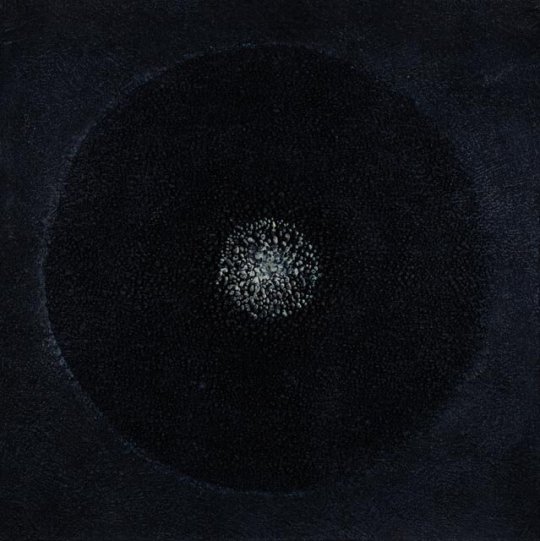
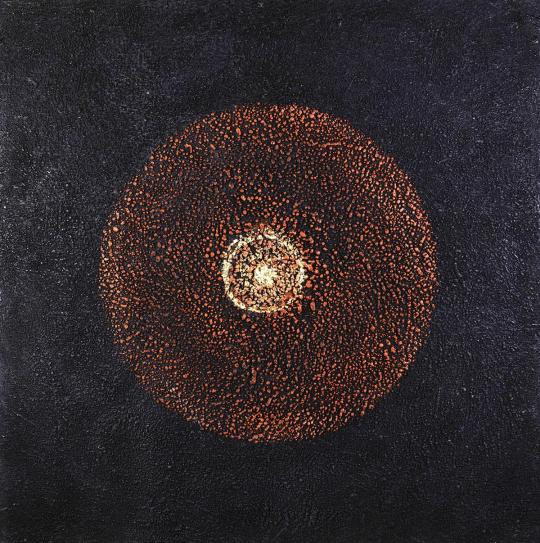

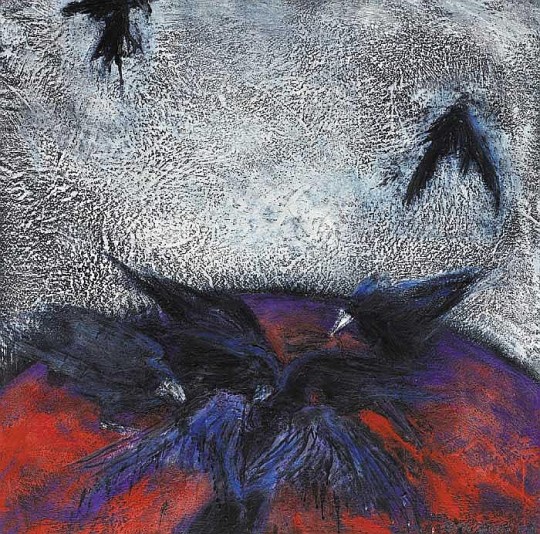
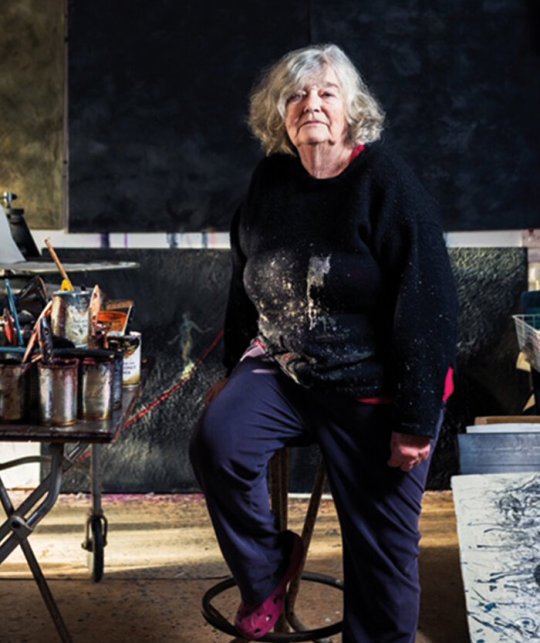
Irish artist Helen Comerford.She was born in Thomastown co. Kilkenny and received her art education in Dublin, Belfast and Utrecht. Helen Comerford has been with Taylor Galleries since 1979 and had her first solo exhibition there in 1980.
20 notes
·
View notes
Text
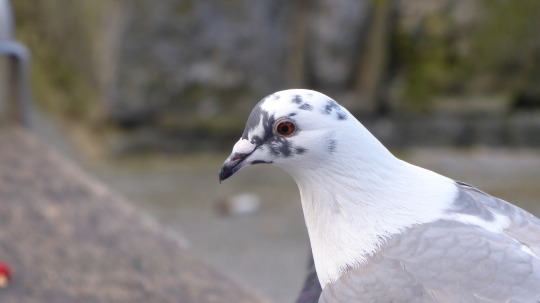
Co. Kilkenny, Ireland, 16.02.2024
#pigeon#rock dove#rock pigeon#bird#birds#birdblr#birblr#columba livia#if good doesnt exist then how do you explain pigeons#garden variety myosnt posting
4 notes
·
View notes
Text
Dame Alice Kyteler: the Witch of Kilkenny
A documentary in both Irish (with English subtitles) and English based on the famous Cailleach of Ireland.
#pagan witch#pagan wicca#wicca#wiccan#witchcraft#pagan#irish history#irish mythology#irish heritage#cailleach
3 notes
·
View notes
Text
#OTD in 1650 – Kilkenny surrendered to Oliver Cromwell.
The success of Oliver Cromwell’s Irish campaign during the autumn of 1649 caused further divisions in the Marquis of Ormond’s Royalist-Confederate coalition. With the defeat of British and Scottish forces in Ulster and the defection of most of Lord Inchiquin’s Protestant troops to the Parliamentarians, Ormond was obliged to rely increasingly upon Catholic support. Early in December 1649, the…

View On WordPress
#Co. Kilkenny#Henry Ireton#Ireland#Irish Town#James Butler#Kilkenny Castle#Marquis of Ormond#Oliver Cromwell#Oliver Cromwell&039;s Model Army#River Nore#Siege of Drogheda#St John&039;s Bridge#Surrender of Kilkenny
7 notes
·
View notes
Note
hi there✨💕
Hope you’re having a great day and love your blog.
I’m traveling to Ireland soon, Dublin then Kilkenny and cork. Would you have any recommendations as someone who lives in Ireland of things to see or do? I’ve got a list going but would love to hear your thoughts
Ty☀️
Oh definitely go to the national gallery in Dublin!! Lots of amazing Irish art and you can see Caravaggio's Taking of Christ which has a really cool story of how it got to the gallery! I know a lot of ppl go to the Guinness Storehouse for a tour (including Irish ppl) I've heard its really good!
Definitely avoid temple bar for drinks cos all the tourists go there and its just a rip off literally go to any other area for a drink! If you get a good day of weather try going to Phoenix Park it's beautiful in the summer and there's loads of wildlife to see. The zoo is also in the same park if you had any interest in going but look online as well cos there's always events on! 💜
2 notes
·
View notes
Photo

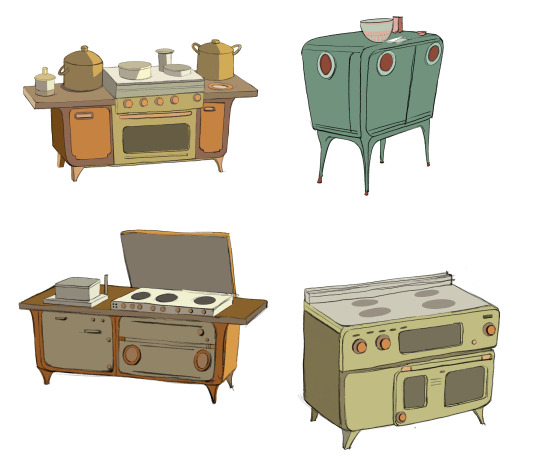



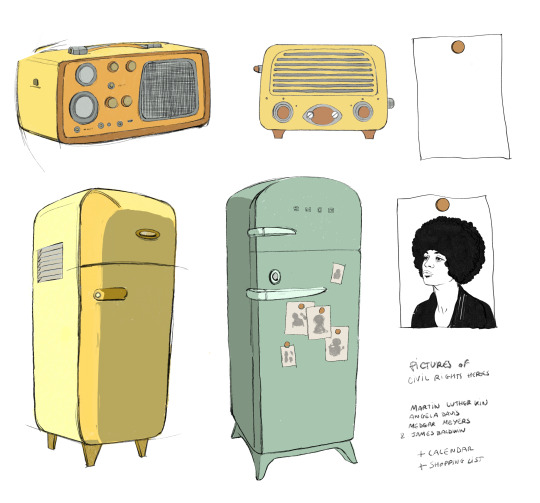



4
Internship at Cartoon Saloon studios, in Kilkenny, Ireland.
After Tomm Moore’s agent in France introduced him my work last summer, we finally met in Paris last October. Tomm Moore was kind enough to invited me to work in the development department at Cartoon Saloon Studios where I was assigned to design assets to populate a Brooklyn kitchen for the animation feature “Julian is a Mermaid” directed by Louise Bagnall now in production.
The development team was a small twith less than ten people including Art Director Louise Bagnall, and co-Director Guillaume Lorin.
Working all in the same room allowed to exchange ideas and feelings about the project at the speed of talk in a friendly and cooperative atmosphere...
As everyone seemed to be happy with my work, we discussed the opportunity for me to come back on the production this summer.
It was a tremendous experience during which I’ve been learning a lot with a great team on a very exciting project.
Photoshop and Prorcreate designs.
20th of February to 2nd of March 2023
3 notes
·
View notes
Text
Ruth Negga shared this today, it's a bit niche, but it's my niche. Daniel is wearing her Co. Limerick Gaelic Athletic Association hat, Limerick played Kilkenny (and won) in hurling today. I was working at the stadium today for the match

#daniel craig#ruth negga#gaelic athletic association#Co. Limerick#Ireland#hurling#is daniel a hurling fan now?
10 notes
·
View notes
Note
Thats peak holiday season in Ireland so you should probably book ahead for accommodation that time of year. I love Kilkenny for medieval history. Galway is great for pubs & music as well as being a good base to travel out to Clifden & Connemara. Also Dingle area in Co Kerry or Westport in Co Mayo for more rural experience. Public transport in Ireland is pretty much focused around the main cities and towns so if you want to get out there to see the landscapes then go with car hire or there are some good small group/adventure experience tour companies if you are into that. Overall - dont try to cover the whole place in a week like i see lots of tourists trying to do. It’s a small country but it’s better to pick one or two bases (eg Dublin then Westport) and making the most of that instead of rushing around.
Thanks for the info! I like really old shit (the older the better) and I plan to be coming back every summer around this same time so I don't feel like I need to do everything. :) I've also seen everything in Dublin that I want to, so while I'm flying out of there I don't want to spend any more time there.
Since I was a little girl I've wanted to see the Cliffs of Moher, so I'll be a tourist this time and center my trip around that location. Might be hiring a car, might not (depends on price, not looking good). I'd rather drive, since that opens up my options a lot and means I have to plan less right now. But maybe I take a train to Galway, rent a place around there, and take a tour down to the Cliffs.
3 notes
·
View notes